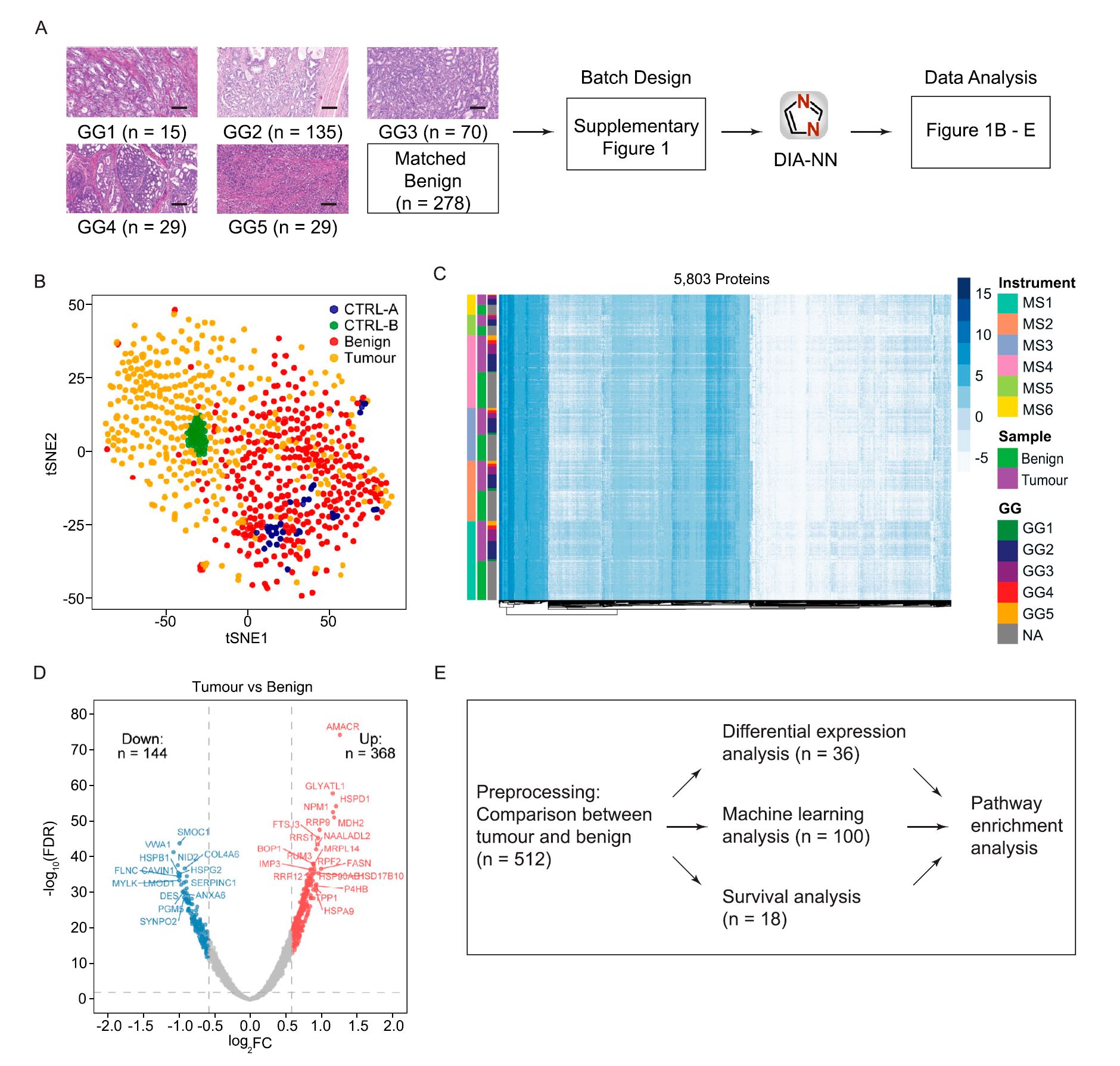Jurisdiction:
Australia
Organ System:
Prostate
Funding Organizations:
- Australian Cancer Research Foundation
- Cancer Institute New South Wales
- NSW Ministry of Health
Research Organizations:
- The University of Sydney, Australia
- Westlake University, China
- Institute of Molecular Systems Biology, Switzerland
- University Hospital Frankfurt, Germany
- Frankfurt Institute for Advanced Studies, Germany
Principal Investigators
:- Peter J Wild
- Tiannan Guo
- Ruedi Aebersold
Publication:
External Link:
Gleason grading is an important prognostic indicator for prostate adenocarcinoma and is crucial for patient treatment decisions. However, intermediate-risk patients diagnosed in the Gleason grade group (GG) 2 and GG3 can harbour either aggressive or non-aggressive disease, resulting in under- or overtreatment of a significant number of patients. Here, we performed proteomic, differential expression, machine learning, and survival analyses for 1,348 matched tumour and benign sample runs from 278 patients. Three proteins (F5, TMEM126B, and EARS2) were identified as candidate biomarkers in patients with biochemical recurrence. Multivariate Cox regression yielded 18 proteins, from which a risk score was constructed to dichotomize prostate cancer patients into low- and high-risk groups. This 18-protein signature is prognostic for the risk of biochemical recurrence and completely independent of the intermediate GG. Our results suggest that markers generated by computational proteomic profiling have the potential for clinical applications including integration into prostate cancer management.

